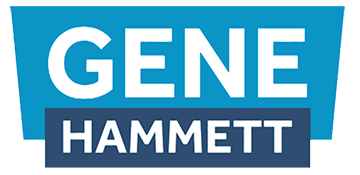In this episode, I sit down with Amberly Allen, Managing Partner at Dealer Merchant Services, to explore the power of building an accountability culture inside an organization. Dealer Merchant Services is No.120 on the 2025 Inc. 5000 list. Amberly shares her inspiring entrepreneurial journey, launching her company during the COVID-19 pandemic and scaling to serve more than 1,050 auto dealerships in credit card processing. She reveals how her philosophy of “loving people up or loving them out,” combined with clear expectations and open communication, creates a culture where accountability drives performance. What stood out to me is how Amberly empowers her team with autonomy and decision-making, fostering a self-motivated environment where accountability becomes second nature. She also opens up about balancing self-care and leadership as a single parent, underscoring that accountability isn’t just a business practice — it’s a way of life. Her story highlights why high expectations and continuous improvement are the cornerstones of a thriving accountability culture, offering powerful lessons for leaders committed to building effective, resilient organizations.
- Introduction to Accountability Culture
- The Journey of Dealer Merchant Services
- Defining Accountability in Leadership
- The Importance of Coaching
- Addressing Accountability Shortcomings
- Management and Accountability
- High Expectations and Growth
- Empowering Teams with Autonomy
- Closing Thoughts on Leadership and Culture
Amberly Allen on Coaching, Resilience, and Building a Culture of Accountability
Amberly Allen, CEO of Dealer Merchant Services, shares her journey and insights on cultivating a strong culture of accountability within her organization. From her experience starting her first business in her early 20s, Allen emphasizes the importance of having a coach throughout her entrepreneurial journey, which she views as essential for personal and professional growth. By leveraging the expertise of coaches, she was able to expedite her learning curve and systematically approach challenges. In the podcast, Allen discusses how she founded Dealer Merchant Services just before the COVID-19 pandemic, recognizing an opportunity in the auto industry—specifically in credit card processing for dealerships. Through meticulous research and feedback from clients, she carved a niche that now services over 1,050 clients nationwide. Allen illustrates her strategic vision, expressing ambitions to increase that number significantly over the next few years as market compliance evolves.
Driving Growth Through Accountability and Agile Leadership
As the conversation progresses, Allen delves into the core leadership principles that have fueled the company’s rapid growth despite external challenges. She highlights the necessity of bootstrapping the business, which has ingrained a culture of efficiency and resource management within her team. Allen articulates the need for a fast-paced work environment, a reflection of the car dealership sector’s demands. This creates a symbiotic relationship wherein her employees, many of whom come from the auto industry, are encouraged to apply their experience to meet high expectations. A substantial portion of the dialogue focuses on the concept of accountability within her organization. According to Allen, accountability is not merely about oversight; instead, it involves a consistent commitment to execution. She stresses the need for leaders to set clear expectations and verify those commitments regularly. This process is anchored in open communication, where managers clarify what is needed from their teams and provide the necessary resources to meet those goals.
Accountability with Compassion: Empowering Teams Through Autonomy and Support
Allen’s description of accountability culture is characterized by the concept of “loving people up or loving them out.” This approach emphasizes understanding the reasons behind performance issues and ensuring effective communication of expectations. If a team member consistently falls short, the organization must either work to improve their performance or make the difficult choice to let them go. Moreover, Allen addresses the challenge many new managers face in holding their teams accountable. To mitigate this, she promotes reframing accountability as a supportive measure rather than an adversarial one. By helping staff recognize their strengths and aligning them with the organization’s goals, managers can empower employees to take ownership of their roles and seek solutions on their own. Another key element of Allen’s leadership style is the emphasis on individual autonomy and empowerment. She strongly believes in delegating decision-making tasks to her team, fostering an environment where employees feel confident to propose ideas and solutions. This respect for their capabilities not only drives self-motivation but also enhances overall company performance.
Balancing Leadership, Self-Care, and a Culture of Continuous Growth
The conversation also touches on personal reflection and maintaining work-life balance, especially as a single parent. Allen reveals her daily routine, which integrates personal well-being practices such as meditation, enabling her to navigate the stresses of entrepreneurship effectively. This aspect of her leadership showcases the importance of self-care to sustain productivity and prevent burnout. As the interview concludes, Allen underscores that high expectations are vital in her company culture, both for herself and her team. She articulates the joy of witnessing employees exceed their initial roles and find growth in new positions within the organization, reinforcing a culture of continuous improvement and commitment to excellence. In sharing her insights, Amberly Allen establishes a comprehensive framework for fostering an accountability culture that emphasizes clear communication, empowerment, and personal development—principles that can serve as a guide for leaders seeking to enhance their organizational dynamics.



